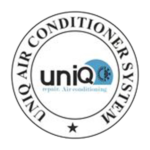Emergency AC Service: Keeping Cool When It Matters Most
In the sweltering heat of summer, a sudden AC breakdown can turn your home into an uncomfortable and stifling environment. Fortunately, emergency AC service exists to provide immediate relief and restore comfort to your living space. In this comprehensive guide, we will delve into the world of emergency AC service, exploring what it entails, common causes of AC emergencies, tips for handling such situations, and preventive measures to reduce the risk of future emergencies.
Chapter 1: Understanding Emergency AC Service
1.1 What Is Emergency AC Service?
Emergency AC service is a specialized service offered by HVAC (Heating, Ventilation, and Air Conditioning) professionals to address urgent AC system issues, especially when they occur outside of regular business hours. It provides homeowners with a lifeline during unexpected AC breakdowns to ensure their comfort and well-being.
1.2 When Is Emergency AC Service Needed?
Emergency AC service is needed in various situations, including:
- Sudden AC Failure: When your AC system stops working completely, leaving you without cooling on a hot day.
- Refrigerant Leaks: Refrigerant leaks not only impair cooling but can also pose health risks.
- Electrical Problems: Faulty wiring, circuit breakers, or capacitors can lead to AC malfunctions.
- Compressor Issues: Compressor failure can result in inadequate cooling.
- Blocked Condensate Drain: A clogged drain can lead to water damage and system malfunction.
- Unusual Noises or Smells: Strange noises or odors coming from your AC unit may indicate a problem that requires immediate attention.
Chapter 2: Common Causes of Emergency AC Issues
2.1 Lack of Maintenance
Neglecting regular AC maintenance can lead to various issues, including clogged filters, dirty coils, and worn-out components. Preventive maintenance can help avoid emergency situations.
2.2 Electrical Problems
Faulty wiring, damaged capacitors, or problems with the circuit breaker can disrupt the electrical operation of your AC system, leading to sudden failure.
2.3 Refrigerant Leaks
Refrigerant leaks not only reduce cooling efficiency but can also damage your AC system. They require professional attention due to the environmental and health risks associated with refrigerants.
2.4 Compressor Failure
The compressor is a vital component of your AC system. If it fails, your AC won’t cool effectively, and you’ll need emergency service to repair or replace it.
2.5 Clogged Condensate Drain
A blocked condensate drain can cause water damage and affect your AC’s performance. It’s crucial to address this issue promptly to prevent emergencies.
Chapter 3: Handling an AC Emergency
3.1 Stay Calm
In the event of an AC emergency, it’s essential to stay calm and avoid panic. High temperatures can be uncomfortable, but remaining composed will help you make better decisions.
3.2 Turn Off the AC
If you notice an issue with your AC, it’s a good idea to turn it off immediately to prevent further damage. Continued operation may worsen the problem.
3.3 Check the Thermostat
Make sure the thermostat settings are correct and that there are no issues with the thermostat itself. Sometimes, the problem may be a simple setting or calibration error.
3.4 Inspect the Air Filter
A clogged or dirty air filter can impede airflow and cause cooling problems. Check and replace the filter if necessary.
3.5 Call for Emergency Service
Contact a reputable HVAC technician who offers emergency AC service. Explain the issue, and if possible, provide details about any unusual noises, smells, or warning signs.
3.6 Stay Hydrated
While waiting for emergency service, stay hydrated and find ways to stay cool, such as using fans or seeking refuge in an air-conditioned space if available.
Chapter 4: Preventive Measures to Avoid AC Emergencies
4.1 Regular Maintenance
Schedule routine maintenance for your AC system to keep it in top condition. Professional inspections and cleaning can identify and address potential issues before they become emergencies.
4.2 Clean or Replace Filters
Regularly clean or replace air filters to maintain proper airflow and prevent dust and debris from accumulating in your AC system.
4.3 Address Electrical Issues
Promptly address any electrical problems, such as flickering lights or tripped breakers, as they may be indicative of AC issues.
4.4 Monitor Refrigerant Levels
Keep an eye on refrigerant levels and have them checked regularly by a professional. Low refrigerant can indicate leaks that need immediate attention.
4.5 Keep the Area Around the Outdoor Unit Clear
Ensure that the outdoor unit’s surroundings are free of debris, leaves, and obstructions to maintain proper airflow.
Chapter 5: Finding a Reliable Emergency AC Service
5.1 Research and Recommendations
Look for HVAC companies that offer emergency AC service in your area. Seek recommendations from friends, family, or online reviews to find a reputable service provider.
5.2 Licensing and Certification
Ensure that the HVAC technician is licensed, insured, and certified. Proper credentials are essential for reliable and safe emergency service.
5.3 24/7 Availability
Choose an HVAC company that provides round-the-clock emergency service. AC breakdowns don’t always occur during regular business hours, so availability at any time is crucial.
5.4 Transparent Pricing
Request a clear estimate of the cost for emergency service upfront to avoid surprises. Reputable companies provide transparent pricing.
Chapter 6: Conclusion
Emergency AC service is a valuable lifeline when you find yourself facing an unexpected AC breakdown during the hot summer months. Understanding the common causes of AC emergencies, how to handle them, and the preventive measures you can take to avoid emergencies will help you stay cool and comfortable year-round. By selecting a reliable emergency AC service provider and committing to regular maintenance, you can ensure that your AC system remains reliable and efficient, even in the most challenging conditions.

 Please enter your name and phone number below, We will get back to you soon.
Please enter your name and phone number below, We will get back to you soon.